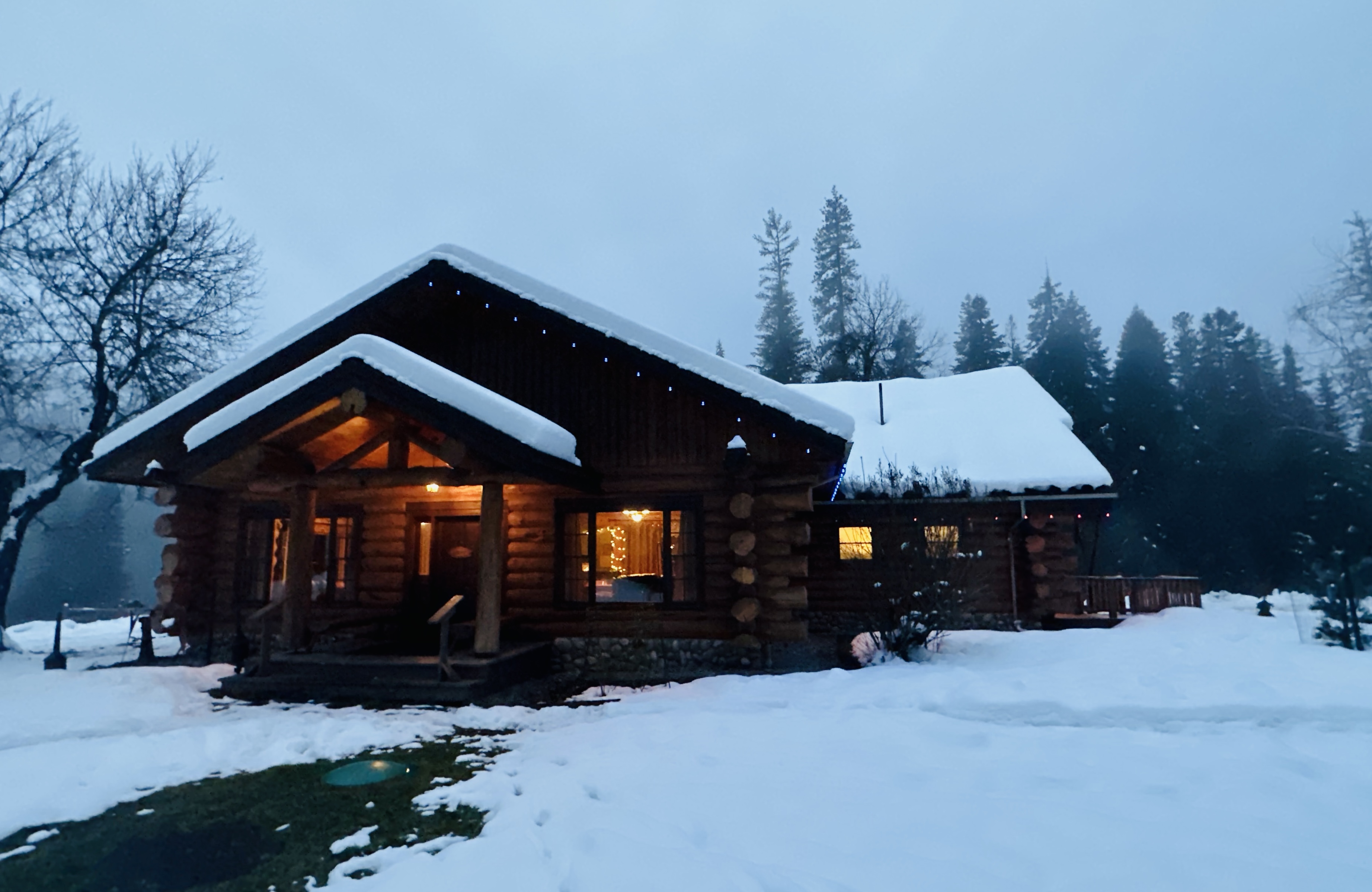Clay reports from his annual humanities retreat near the Montana-Idaho border in the Northern Rockies.

Lochsa Lodge, 60 miles west of Missoula, Montana — I just returned this evening from the orientation meeting for a Shakespeare humanities retreat I am leading in a lovely retro lodge in the Bitterroot Mountains. Beginning tomorrow morning, we will spend the next four days talking about two of Shakespeare’s plays: As You Like It and King Lear.
Last week, I hosted a similar retreat on two excellent books: Henry David Thoreau’s Walden and Edward Abbey’s Desert Solitaire. We all had amazingly satisfying discussions in the lodge’s library, around the huge evening bonfires, during the group meals, and as we strolled along the Lochsa River just 200 steps from the lodge. We asked hard questions about life, Life, and how we live. I came away determined to lead my life more deliberately and more minimally.
I am the luckiest man alive to be able to create these communities and watch them flourish. And here’s why they flourish.
The participants have good and full lives, but they want a quality of conversation they are not always getting where they live. We all belong to book clubs, but we all know how they devolve in an age when everyone is just so @Z#!@# busy. People come to these retreats because they are hungry for something more in American life: more than the soundbites and the culture war shouting. They want to talk about ideas with others who want to talk about ideas.
I write this because I strongly believe that much of America wants something more. More substantive, more civil, more generous, more serious. Less sensational, less vulgar, less righteous.
We can come out of this malaise. I use the term in honor of the late Jimmy Carter, one of the best men of our time, who was also president of the United States. (Although it seems he never actually used that exact term.)
It seems clear that the reformation will not start from the top down but from the lower plateaus up. I won’t say bottom because we know who lives there in both parties and persuasions.
Each of us is going to have to strive to be our best selves, to practice what Jefferson called “artificial good humor,” to give the benefit of the doubt, to bring the temperature down, to insist (at least for ourselves) on evidence and remember that our system only works through compromise. Heck, Jefferson said more. He said it only works if both sides bend over backward to accommodate the other party or point of view. (If so, we will be in some trouble!)
If you could sit in on our conversations this week, you could come away more optimistic about America. Yes, these are unusually bookish people, but they represent a wider swath of America than we realize. There is such longing on the Right for a more innocent (or seemingly innocent) time in American life. And though one can disagree with much of the Right’s agenda to get us there, I think we all sometimes wish we lived in a country whose government functioned more like a high school student council or Model UN than the circus and travesty that our national politics have become. And where civility, forgiveness, and mutual respect were more common.
Walden teaches us how to live. Desert Solitaire tells us what to avoid as we develop the recreational American West. As You Like It suggests, in the end, the only things that matter on a day-to-day scale are good marriages and a government with a conscience. And King Lear asks us who we are at the core: a majestic being just this side of the Angels or a “poor bare forked animal” leading a life not much more than bestial at heart.
We’ll be forming an America at 250 Book Club for those who wish to join. We’ll meet on Zoom four or more times yearly to discuss books and ideas. Drop us a note at clay@ltamerica.org if you’d like to learn more.
I strongly believe that America’s salvation will come in part through a renewal of the humanities and that much of what has happened to our beloved republic is related to the decline of liberal arts and humanities education in the United States.
We will start tomorrow by looking briefly at the “To Be or Not to Be” soliloquy. May as well bore right into the heart of things!
